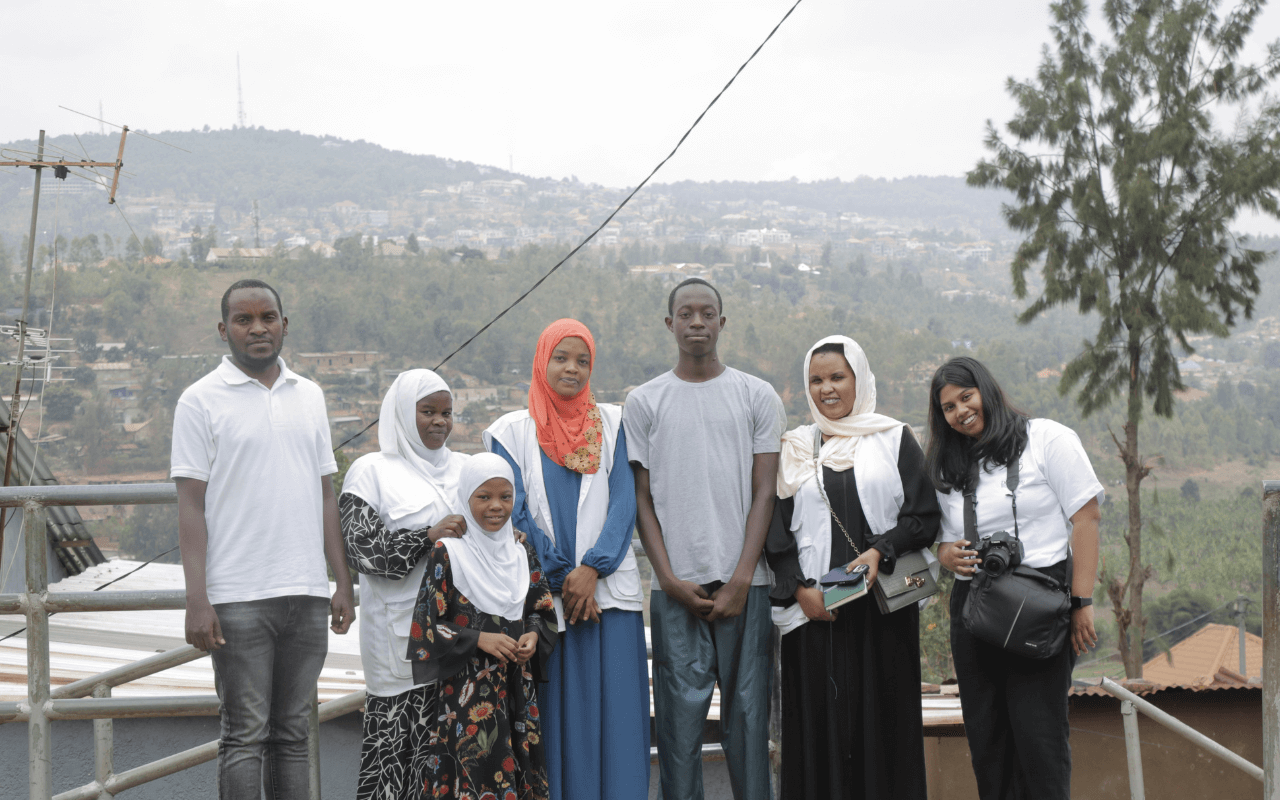A few months ago, I had the opportunity to go on my first deployment to Rwanda and Malawi to better understand our palliative care and health systems strengthening projects. My experience was humbling — one that reminded me of the incredible resilience of individuals and communities, even in the face of immense challenges.
In Rwanda, I finally had the opportunity to meet our hardworking and dedicated team delivering home-based palliative care to patients with life-limiting illnesses. Having worked with Doctors Worldwide for over three years, I’d read countless patient case studies, but meeting some of our patients in person was a whole different experience. It made me realize just how starkly different it is to hear a patient's story versus witnessing their reality firsthand. Palliative care is so much more than just a service, it’s a lifeline for those at the end of their lives.
As I joined the Kigali team on home visits, I was deeply moved by the commitment our team on the ground showed in delivering holistic palliative care to patients who need it most. The way they connected with the patients, offering not just medical care but empathy and companionship, was nothing short of inspiring. It was a reaffirming moment for me to see that the work we do — whether it’s training healthcare providers or directly delivering home-based care — truly makes a difference.

One of the most memorable patient visits was meeting Chanel, a young palliative care patient who initially came to us through our Medical Debt Relief Project. Chanel is 7 years old and was diagnosed with pineoblastoma (a type of brain tumor) in early 2024, after months of severe headaches. Despite surgery, her condition worsened, leading to cerebral palsy and the complete loss of sight and speech. At this point, her doctor referred her to our local palliative care team. Chanel is the firstborn of 3 siblings, and her father, Jean Claude, a part-time village security guard, earns just 45,000 Rwf (~£26) a month — barely enough to meet the family’s basic needs. Her mother has been by her side since the beginning, providing constant care.
During her hospitalization, the family was understandably overwhelmed with depression, but our team on the ground stepped in to provide crucial support. As part of our palliative care services, we supplied a monthly food package, a special diet for Chanel, and covered the rent for the family’s two-bedroom house in the Nyakabanda sector. In addition, we ensured Chanel received medical care when necessary, arranging transportation to the hospital and providing nursing services at home. Jean Claude expressed his deep gratitude, saying,
"The help we received through the palliative care and the medical debt relief projects has eased the burden because now the child can get almost everything she needs."
My deployment to Malawi was longer, more intense, and involved a lot of travel to different regions. It is only right of me to admit that I was often reminded of my privileges throughout this trip because I am lucky to live in a 15 min city, where I am able to access a healthcare facility easily and I am even luckier to be able to afford quality healthcare. The communities we serve are always the ones that are the furthest to reach, and thus also those who struggle the most to access healthcare.
One of the highlights of my trip to Malawi was a two-day medical clinic in a village near the Chinsinga River in the Balaka district. The clinic was about an hour’s drive from the main road, and as we made our way there, we passed through rugged, dusty terrain with stunning baobab trees along the way. Many people in these communities live without access to motorized transport, meaning they often have to walk long distances just to access basic services. Similarly, the communities we visited in Mangochi were just as remote, with limited healthcare options beyond the clinics we support in the area.
One of the most striking encounters was with a clinical officer working in a remote clinic. The facility had been built with support from a different organization, but when funding ran out, the clinic was left struggling to provide adequate care. This officer, despite the lack of resources and minimal pay, remained deeply committed to the community’s health.
I can’t even begin to put together the stories I've heard from all kinds of people throughout my deployment but in a nutshell, I met some of the most resilient, dedicated, and inspiring people on this journey. Their strength and determination, despite overwhelming odds, left an indelible mark on me.
None of the work I witnessed, or the patient stories I heard, would have been possible without your support, but there is so much more to be done, and so much more that can be done with low-cost interventions. Through our Most In Need fund, it only costs £1 to support the medical care of 2 patients.
Donate now: https://bit.ly/40QRadA


